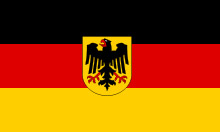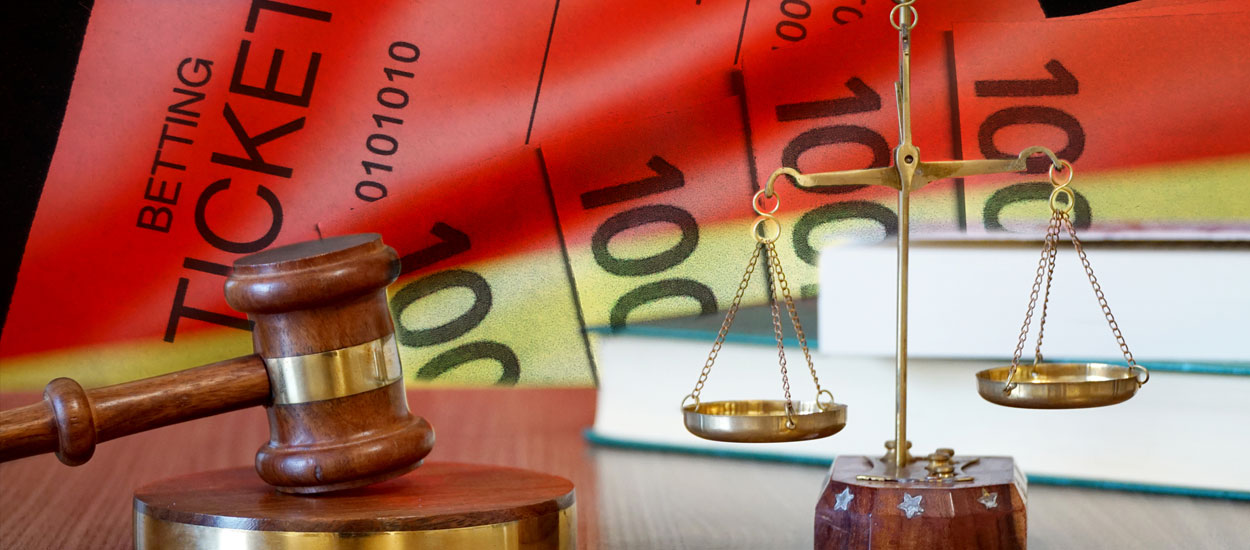A decade in the making, Germany has come up with another revised gambling treaty
One of the more intriguing gambling stories of the last decade involved the country of Germany. When it became evident that online gambling was going to be the future of the industry in 2010, the German federal government announced plans to create an interstate gambling treaty to help regulate the new industry.
Under the proposed plan, the government was going to grant 20 online sports betting licenses, but would not allow any casino or poker games to be played over the Internet. The government gave various reasons for limiting the options to sports betting, but it was widely understood as a protectionist effort for existing land-based operators. While the intention was for every state to simply adopt the new treaty, there was a rule that allowed individual states to opt out. Consequently, upon hearing the national plans, the state of Schleswig-Holstein (S-H) decided to opt out of the national treaty and instead chose to offer its own new scheme. Since S-H was originally under Danish rule and is so close to the Denmark border, it was only natural that the state would have a different belief system on gambling than Germany, since Denmark is far more liberal on social issues. In 2012, S-H therefore set up a new licensing scheme allowing all companies, including foreign businesses, to operate online gambling from their state, including online sports betting, casino games and poker. The tax rate and licensing fees were very competitive and most of the major gambling companies in Europe like Bet365, PokerStars, 888, etc. jumped at the opportunity and applied for and received a gambling license valid for six years. In the meantime, the German plan to offer 20 sports betting licenses turned out to be a colossal failure. When the 20 licenses were chosen, they were given solely to local German and Austrian businesses and so almost all the major European casino companies issued a complaint with the EU courts claiming the process was unfair and violated EU laws. The EU courts agreed saying that the selection process used by Germany was flawed, violated EU rules, and had to be changed.
In the meantime, the German plan to offer 20 sports betting licenses turned out to be a colossal failure. When the 20 licenses were chosen, they were given solely to local German and Austrian businesses and so almost all the major European casino companies issued a complaint with the EU courts claiming the process was unfair and violated EU laws. The EU courts agreed saying that the selection process used by Germany was flawed, violated EU rules, and had to be changed.
At first the German government balked but then announced that it would increase the number of licenses to 40, thus authorizing any companies that applied for a sports license the first time to be allowed in, but that new applications for a license would not be allowed. Again, the EU said that wasn't good enough and many of the higher German courts also indicated they were uncomfortable with this solution. So, going back to the drawing board in 2018, the federal government threw up its hands and said they would not limit sports betting licenses, would come up with a new solution for 2021 and would issue temporary sports betting licenses in the interim. But, they also made it clear that other forms of online gambling like casino and poker were strictly prohibited. This left most operators frustrated and the newly elected government in S-H indicated that they were going to extend the licenses in their state to the end of June 2021.
After talking it over with states, courts and gambling operators, the German government realized they were fighting a losing battle hoping to stop online casino gambling, so they decided to simply open things up in 2021 with a completely revamped new national gambling treaty and licensing scheme which would include all forms of gambling and which will get national buy-in from all states including S-H. The new treaty not only allows online sports betting, but also casino games and poker. At the same time the rules are extremely stringent and limited, so in essence it is a compromise for both the faction that want gambling liberalized and the faction that want gambling to remain very limited.
The new treaty is called the German Interstate Treaty on Gambling (ISTG2021) and includes a licensing regime to enable providers to obtain licenses to offer online sports betting, virtual slot machines and online poker. Virtual slot machine games are described as simulations of terrestrial slot machine games offered on the Internet, or as many websites nowadays call them "live casino". The rules for who can obtain a license for online casino games are subject to separate laws of the individual states so that more liberal states can put in easier licensing requirements, whereas more conservative states can make the process stricter. S-H apparently plans to make their licensing requirements quite liberal.
National Rules
At the same time there are national rules that every state and operator must follow, and those rules are very extensive and strict.
- A security deposit of at least 5 million euros must be posted and this required amount could increase drastically if the expected turnover of a particular company is higher. For example, it is believed that Bet365 may need a deposit of up to 50 million euros.
- Players must set up individual accounts with true information and undoubtedly there will be a know your customer (KYC) rule that will require several forms of identification to prove the account is of a real person and someone living in Germany.
- Players will have a maximum monthly deposit limit of 1,000 euros and it will be closely monitored by authorities, so that if a player has accounts with multiple companies the total deposits of all cross-supplier accounts will not exceed 1,000 euros.
- The maximum amount of any spin on a slot machine is 1 euro per game.
- Each slot machine game must last at least 5 seconds.
- Jackpots for slot machines are not permitted.
- Players can only play at one online provider at a time.
- Gambling providers must separate the different gaming products on the site (sports, poker, casino), the companies can't advertise their different products together, and players can't play different products the company offers at the same time.
- Advertising must not be aimed at minors, must not be shown as a way to solve financial issues, and can only be advertised on broadcasts and on the Internet between the hours of 9 p.m. and 6 a.m.
- A 5.3% turnover tax will be charged on all online slots and poker games (a recent amendment to the treaty).
Outrage from operators AND players
Not surprisingly these new stringent rules are causing anger and frustration on many fronts. Many operators are claiming that the rules are so strict and so unrealistic that many Germans won't bother signing up with a licensed operator and will continue to bet offshore from companies in places like Malta and the Isle of Man. They claim the deposit limits are a joke, the ban on jackpots is unnecessary and the one-euro maximum spin is a turnoff for any real slot machine player.
A survey commissioned by Etain and Flutter Entertainment earlier this year indicated that most German players said that the payout percentage was the main factor for where they will play and under these rules the payouts at the German licensed casinos would have to be lower, so they would be disinterested. And a more recent study by Handelsblatt Research Institute indicated that up to 40% of Germans said they would play offshore under the current rules. The German government said previously that it would force ISPs to block illegal gambling websites, but most industry analysts agree that doing so may not be that easy with sophisticated VPN technology, and it also may not be legal.
Along with many companies who feel the tax would make their products unprofitable, the European Gaming and Betting Association filed a complaint with the EU claiming the turnover tax violates EU rules, since it would give an unfair competitive advantage to the land-based casinos vs. the online casinos. Given the EU's prior rulings against Germany in the area of gambling reform it is quite possible that the German government may be told to lower or eliminate this tax or face sanctions by the EU courts.
Mind you, it's not just the online operators who are angry with the government over this treaty, as many land-based gaming operators are furious because they said that they are relying on the Internet to help build interest in their casinos, but under these rules they won't be able to make any real money. And by all accounts the lottery has expressed concern that online gambling will harm its business and have said that they believe the country should have just stayed with its original plans to ban online casino play and poker.
Finally?
So, Germany is finally set to introduce its long-awaited gambling treaty, but it seems few are happy with it. Operators believe it has unrealistic regulations, and if polls are accurate, and 40% of Germans continue to play offshore, then it is doomed to fail. In any case, the fact that Germany has agreed to allow online casinos at all is a breakthrough, and the state of Schleswig-Holstein can be thanked for forcing the German federal government's hand. Many will say that S-H is a rogue state that should be condemned for their actions, but others will say that when you have a government that refuses to accept reality then it deserves a good kick in the butt by a rogue state to finally see the light.
Read insights from Hartley Henderson every week here at OSGA and check out Hartley's RUMOR MILL!






































